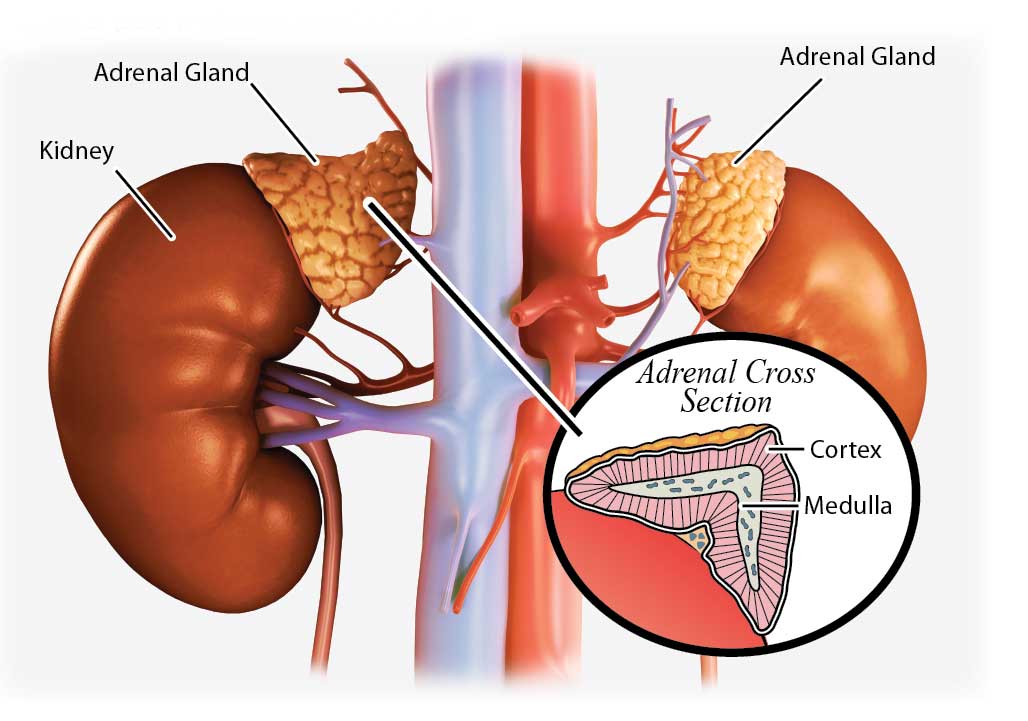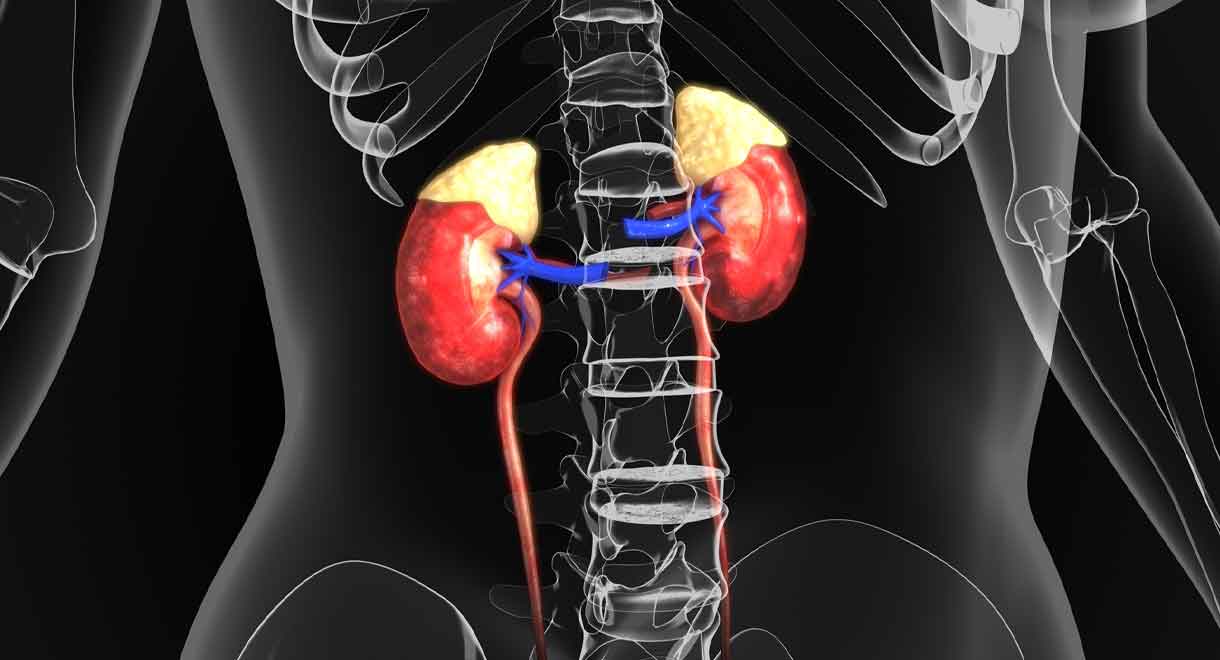Overactive Adrenal Glands
The two adrenal glands sit on top of your kidneys and produce several powerful hormones essential for life. This includes the stress hormones (used in fight or flight) known as adrenaline and cortisol. These hormones are produced when we are physically or emotionally stressed to prepare and equip our body to deal with stress. The centre of the adrenal gland (known as the medulla) produces the quick-acting stimulatory hormone adrenaline. It gets us excited and reduces appetite.
The outer layer of the adrenal glands (known as the cortex) produces steroid hormones from cholesterol. In the cortex, cholesterol is turned into the “mother hormone” called pregnenolone, which then gets turned into different steroid hormones. More than 30 steroids are produced in the adrenal cortex, including cortisol and DHEA.

Stress can cause your adrenals to pump out higher amounts of adrenalin and steroid hormones and if this is only temporary then that is normal.
However, if your blood tests reveal sustained abnormally high levels of steroid hormones (especially cortisol or aldosterone) you could have a serious problem and should see a specialist endocrinologist. Conditions such as Cushing’s syndrome or adrenal hyperplasia can cause obesity, diabetes and very high blood pressure and thankfully these problems can be treated successfully.
Normal ranges of cortisol in blood tests
- Normal values at 8 in the morning are 5 to 25 mcg/dL or 140 to 690 nmol/L.
- Normal values depend on the time of day and may vary slightly among different laboratories.
Cushing’s Syndrome is caused by very high levels of cortisol in your body.
Possible symptoms of Cushing’s Syndrome
These include:
- Weight gain (particularly around the torso)
- Poor wound healing
- Muscle weakness and loss
- Red stretch marks on stomach, back and thighs
- Fluid retention or swelling
- Excess body and facial hair
- Acne (on face and/or body)
- Easy bruising
- Fat accumulation on the lower neck and between the shoulder blades producing a hump
- Rounding and puffiness of the face
- Back pain
- Decreased sex drive (libido)
- Irregular periods (in women)
- Reduced fertility (men and women)
- Diabetes or prediabetes
- Personality changes and mood swings, anger and irritability


Leave A Comment